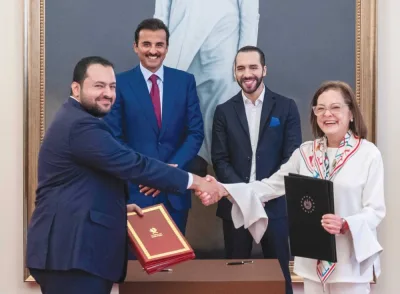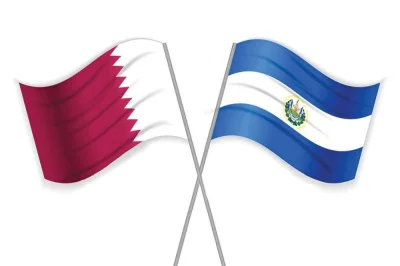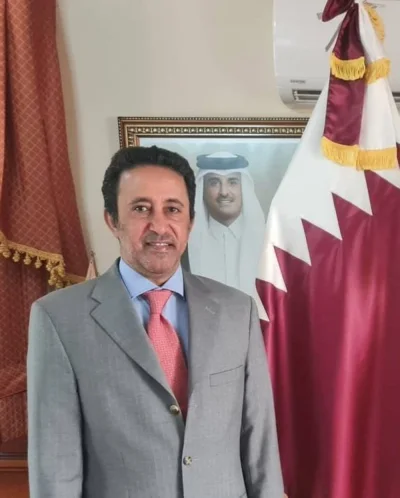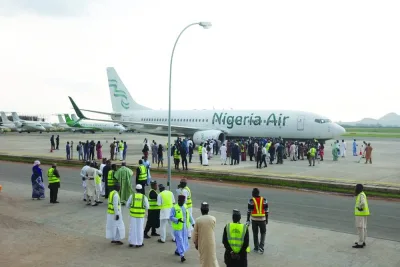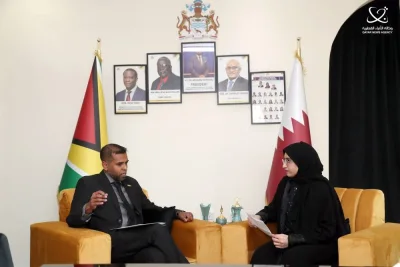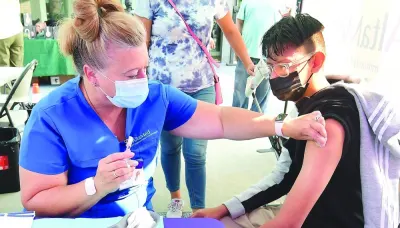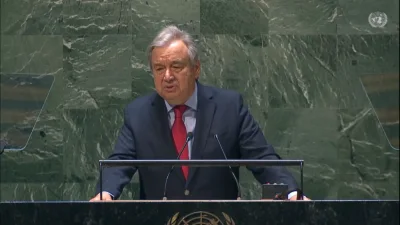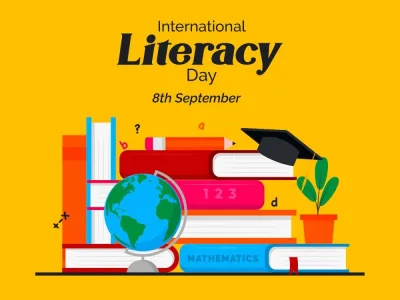The rituals of fall in the northern hemisphere now include preparing for a fresh variant of Covid-19, in addition to the annual flu season. This year, it is EG.5 (nicknamed Eris), a subvariant of Omicron that is already prevalent in the US, Canada, and several Asian countries.
Although the World Health Organisation has identified EG.5 as a “variant of interest,” it is not a major public-health threat by dint of being a subvariant.
Covid-19, the thinking goes, has ebbed: the vaccines worked, and herd immunity has been attained in some parts of the world, causing infection rates and the attendant morbidity and mortality rates to fall from their peaks in 2021 and 2022. But is this indicative of our successful response, or have we simply been lucky?
To be sure, the scientific community mobilised to develop tests, vaccines, and other therapeutics in record time. But, even at its worst, Covid-19 was not as virulent or deadly as past plagues. And, more importantly, scientific ingenuity was not accompanied by innovation in global governance.
In fact, it has become difficult to track new variants, because many countries have reduced or stopped surveillance and widespread testing of suspected Covid-19 cases.
Masking in public places and other precautionary measures have become exceptional. This raises several salient “what ifs.” What if a deadly variant emerges in one of the low-income countries where less than 40% of the population has been vaccinated with at least one dose? What if rich countries have let their guard down too soon? And, perhaps most importantly, what if a new virus causes another pandemic?
There will undoubtedly be a next time, at which point our failure to strengthen the governance of innovation will become glaringly apparent. Even during the Covid-19 pandemic, we have repeatedly missed opportunities to leverage scientific breakthroughs for the public good.
In October 2020, India and South Africa requested a temporary waiver of provisions of the World Trade Organisation’s Agreement on Trade-Related Aspects of Intellectual Property Rights (TRIPS) to enable the rapid production and distribution of vaccines and therapeutics in the developing world. Despite the support of the US (at least in principle) and dozens of other countries, the agreement eventually reached in June 2022 was a mere shadow of the original vision.
Meanwhile, the scenario that the TRIPS waiver was supposed to prevent had come to pass, exposing the current system’s fault lines.
Running counter to the industry narrative of private-sector risk-taking against incredible odds, vaccine development is a long-term endeavour achieved through public-private partnership. Much of the basic research that led to mRNA vaccines had been publicly funded for decades, mainly by the US, the UK, and European Union countries. Additional public funding accelerated research on Covid-19 vaccines, while pre-orders for millions of doses and reduced costs and procedures for clinical trials rounded out the subsidy regime for drug manufacturers. By the time the first Covid-19 vaccines appeared in the West, their production had been mostly de-risked for Big Pharma, thus creating “the vast debacle of global vaccine inequity.”
The pharmaceutical companies used their oligopoly power to negotiate the best deals for their shareholders, under the cover of confidentiality. South Africa, for example, paid more than double the EU price for the Oxford-AstraZeneca vaccine, even though its per capita income is roughly one-fifth that of the bloc.
Moderna is embroiled in a dispute with the US National Institutes of Health over its Covid-19 vaccine patent, with the NIH arguing that three of its researchers must be listed as co-inventors. Even now, vaccine availability in many African countries is woefully inadequate, and the Access to Covid-19 Tools Accelerator, created to co-ordinate the equitable distribution of tests, vaccines, and therapeutics, faces a funding shortfall of $247mn.
Moreover, Covid-19 is only one part of the public-health landscape. The African Union has set a target of meeting 60% of the continent’s total vaccine needs through regional manufacturing by 2040. But even this modest goal relies heavily on foreign funding and faces barriers seemingly built into the current innovation and IP systems.
The upcoming trials – funded by the Bill & Melinda Gates Foundation and the Wellcome Trust – of a promising tuberculosis vaccine have highlighted the ambiguous commercial arrangement between the Gates Foundation and GSK, the vaccine’s developer. (The Gates Foundation has long advocated for exclusive rights to drugs and allegedly convinced researchers at the University of Oxford to partner with the biotech company AstraZeneca instead of offering non-exclusive, royalty-free licences for its Covid-19 vaccine.)
This matters for many reasons, not least because the AS01 adjuvant used to increase the vaccine’s efficacy – and which GSK will supply – has immense potential for other drugs. One of its components, QS-21, has been cultivated by indigenous peoples in Chile for centuries, which raises the question of how this population is benefiting, if at all, from the molecule’s pharmaceutical monetisation.
The global community has demonstrated an ability to harness science and innovation for the public good. Consider how 50 years ago, when hunger and malnutrition were at the top of the agenda, governments, international organisations, and foundations banded together to fund the Green Revolution and CGIAR, a global network of agricultural research centres that has produced significant advances in food and agricultural technology and policy.
But, clearly, the current governance structures are no longer fit for purpose. Imagine if an innovator were to unveil a technological fix for climate change. The global community would almost surely struggle to encourage its rapid and comprehensive uptake, and it would be no different for other innovations that exhibit positive externalities.
It has been said that a crisis is a terrible thing to waste. As matters stand, we will meet our next health crisis having largely wasted this one (which is still not over). Given that the innovation and IP regimes remain largely unchanged, we will have to count on getting lucky again. - Project Syndicate
Rohinton P Medhora, a distinguished fellow at the Centre for International Governance Innovation, sat on The Lancet and Financial Times Commission on Governing Health Futures 2030

